- Home
- George R. R. Martin
Suicide Kings wc-20 Page 17
Suicide Kings wc-20 Read online
Page 17
“We are a great people. A great people,” the taxi driver said in rapid-fire French. “Africa held many great kingdoms long before the whites came out of their caves.”
The traffic in Kongoville was manic, with three and four lanes being formed by jostling cars on a two-lane road. Cranes loomed over the city like contemplative dinosaurs. There were vast piles of rubble where shanties and older buildings had been razed in preparation for another The People-The People’s Theater, The People’s Hall of Justice, The People’s department store, laundrette…
Even in early December the air-conditioning in the car was blowing full blast. Add that to the music pouring from the radio and the driver’s commentary, and it was hard for Noel to gather his thoughts for his upcoming meeting with President-for-Life Dr. Nshombo. Noel wore a perfectly tailored Italian suit, an opal and diamond ring on his little finger. He didn’t want Etienne Pelletier to seem too upscale. He hid the avatar’s golden eyes behind dark glasses.
Noel found the taxi driver’s assertion of lost African kingdoms both understandable and sad. He had spent a lot of time in the Middle East, and the populace there shared the same sense of racial, national, and geographic pride, completely at odds with their actual situations. In the Middle East you heard how Baghdad had streetlights when Europe was mired in the Dark Ages. In Africa it was the lost kingdoms.
They were all the dreams of conquered and economically depressed people reacting against Western might. Noel contemplated how Prince Siraj’s three-hundred-dollar-a-barrel oil had almost brought Europe and America to their knees, and how the PPA’s conquests in Africa were denying the West vital resources. Payback’s a bitch, he thought.
A large stone structure caught his attention. That was new since his last visit to Kongoville. Whatever it was it shared that Albert Speer style of architecture that was favored by the good Doctor. “What’s that?” Noel pointed.
The driver turned down the radio, and said quietly and respectfully, “That is the tomb of Our Lady of Pain.”
Noel pulled back a cuff and glanced at his watch. He had time. “I would like to see that.”
The driver pulled over and parked. Noel walked up the stone steps. They had already begun to wear. There must have been literally thousands of people through the door, he thought.
The single room was high and cavernous. High above him Noel heard the squeaking of bats that turned the tomb into a cave. The center of the room was lit by a powerful spotlight that shone down on a crystal bier. Inside lay a beautiful young woman. The embalming job had been exquisite. Her burnished black skin seemed soft and pliable, no one had forced a false smile onto her mouth, and the way her lashes brushed at her cheeks gave the impression she was only sleeping. Around her neck hung an enormous gold medal suspended by a purple velvet ribbon.
For a moment Noel reflected on this desperate need of dictatorships to worship their dead. Lenin, Mao, this child. The English never did such a thing. No one kept Victoria on display. Even the Americans aren’t so crass.
“A people’s hero,” the driver murmured.
“What did she do?” Noel asked.
“She took our pain into herself and healed us.” The man bowed his head.
Jackson Square
New Orleans, Louisiana
And on day five, Michelle rested.
She’d been able to stand up yesterday. It felt weird and she was a little wobbly, but it wasn’t impossible.
Today she was almost as thin as she’d been when she was modeling. There was still energy in her. She felt heavier, even though she looked skinny. That seemed to be the legacy of what had happened. She was heavier all the time now. With no mirror, she couldn’t tell how she looked, but the jeans and T-shirt Juliet had bought for her felt like they fit.
The temple seemed sad. The flowers had dried up and Juliet and Joey had thrown them out. The girls were waiting outside for her in the soft drizzle.
Michelle knew what she had to do next.
There was a loud murmur outside. If she hadn’t known better, she would have thought it was the faithful. But they had evaporated during the rain of bubbles. What awaited her outside were reporters.
Michelle let a tiny bubble form on the tip of her finger. It was hard and bright and she shot it to the night sky. It burst high above the temple-a small pop that no one would notice. Then she turned and walked out the door.
On the Lukuga River, Congo
People’s Paradise of Africa
They wended their way downriver. Every bend in the river took Wally a little closer to Nyunzu. And, he hoped, Lucien.
Now he understood what Lucien had been referring to in his last letter, about the soldiers who hurt Sister Julie. But it had been worse than he’d feared. Lucien’s village, Kalemie… it was one of the worst things he’d ever seen, even counting all the stuff he saw and did for the Committee. He hated himself for waiting so long before he came to Africa. “Jerusha?”
“Yeah?”
“What do you think she meant, back in Kalemie? The nun, I mean. Sister Julie.”
“Meant about what?”
“About them taking the kids. About changing them.”
Jerusha was quiet for a long time. The boat bobbed and swayed when he glanced over his shoulder, looking for hippos and crocs. Up front, Jerusha kept one hand on the wheel and both eyes on the river, watching for the same dangers. Finally, she said, “I don’t know, Wally. I wish I did.”
The putt-putt-putt sound of their little motor echoed up and down the river, bouncing between the dense jungle to either side. Water gurgled quietly beneath the prow, where their boat gently peeled back the murky waters of the Lukuga. Not like the patrol boats. Those things cut through the water like a knife.
“That patrol boat had kids on it. Kids with guns.” It reminded him of Iraq. Kids… I don’t want to fight kids.
“Yeah,” said Jerusha. “It did.” He didn’t need to look at her to know how she felt. She was sad. Wally was getting to know her moods, the nuances of her emotions, just from the tone of her voice. Somehow that felt like a small bright spot in what was otherwise turning into a pretty bad deal all around.
“Do you think that’s what she meant? Turning the kids into soldiers? Like maybe they’re gonna do that to Lucien?”
“I don’t… Ouch.” She slapped at her neck, then flicked a squashed bug into the river. The sharp slap ricocheted down the river. “I’m afraid it might, Wally.”
“Me, too. I figure Nyunzu must be where they’re doing it. It’s where they’ve got Lucien at. But he’ll be okay once we get there. They all will, all those kids.”
“I hope you’re right.”
Wally fell silent, thinking. The river forked again. As always, Jerusha took the wider branch. A small island, just a sliver of brush and trees, separated them from the other branch. Wally could see the water on the other side. All around them, the jungle chattered, shrieked, and sang with life. “I’m sorry about what I said earlier. Or, I mean, you know, what I almost said.”
She was silent again. This time, he knew, she was cocking an eyebrow at him. An expression halfway between bemusement and irritation. He could picture it.
“Sometimes I say dumb stuff. But I don’t mean anything by it, okay?” As soon as the words came out, Wally realized this was a dumb thing to say, too. It could give her the wrong idea. Then she’d hate him, and he really, really didn’t want Jerusha to hate him. They were partners now, and had to work together. He needed her help. But that wasn’t all of it. He just… wanted Jerusha to like him.
“I mean, I don’t always say dumb stuff. Sometimes people think
… aw, heck. Remember that thing with me and Stuntman? Back when we were all on TV?”
Guardedly: “Yyyyyeeeeessss.”
“I didn’t say that stuff.”
Jerusha laughed. Not a real gut-busting laugh, but it was still the most he’d heard her laugh since they started traveling together. “I know, Wally. Everybody knows it.”
<
br /> Wally sighed. That was a small relief. “Well, okay. That’s good. I just wanted to…”
He trailed off again as they passed the last bit of island. The two branches of the river rejoined behind them. Neat. It reminded him of canoe camping trips, back home.
Wally turned around just in time to see the boy on the prow of the hidden patrol boat leveling his rifle. “Get down!” he yelled. Jerusha must have seen his expression, because she was out of the pilot’s chair and diving under the gunwale almost before the warning passed his lips.
Tat-tat-tat. Tat-ping-tat. The boy squeezed off two bursts. One round cracked off Wally’s bicep and sent up a white spray from the river. Another shattered the windscreen. “Jerusha?”
“I’m okay,” she said. “I-”
But then Wally couldn’t hear anything except the howl of a motor. A big motor. Jerusha reached up from her hiding spot to wrench the wheel, aiming for the riverbank.
The Leopard Man yelled something. The patrol boat roared out of its hiding spot. It streaked like an arrow toward where they would make land. More bullets whizzed past them. Wally stood. Their boat rocked precariously, but he tried his best to shield Jerusha.
Ping-ping-ping. Hailstones falling on a tin roof.
Twenty feet to shore. Ten feet.
“Jerusha, stay behind me!”
At the last second, she wrenched the wheel again and killed the motor. They swung around, keeping Wally between her and the patrol boat as they bumped up against the roots of a massive mahogany tree leaning out over the water.
Pingpingpingpingpingping.
He crossed the boat in one stride, bullets pattering harmlessly against his back, and grabbed Jerusha under the arms. “Hold on,” he said. And then, as gently as he could, he hurled her into the jungle.
It nearly capsized the boat. Water slopped over the gunwales. A crash and an oof! emanated from somewhere in the brush. Wally spun to face their attackers, hoping to heck that Jerusha wasn’t hurt.
The Leopard Man shouted another order. The soldier at the wheel-the only other adult on the patrol boat-gunned the engine, wedging them between Wally and the shore. Two kids stood up front, along with the Leopard Man. The driver was in the middle; another kid stood in the stern.
Wally jumped onto the prow of the other boat, to keep them from going after Jerusha. The Leopard Man scrambled backward, out of the reach of Wally’s arms, yelling another order. All three kids (they’re just kids!) opened up with their rifles. All Wally could think about through the cacophony of gunfire was putting an end to this before a deadly ricochet killed one of the kids, just like what had happened to poor King Cobalt back in Egypt.
Wally called up his wild card power and lunged forward, reaching for a rifle with both hands. The kids tried to scoot out of reach. One barrel crumpled in his fist. The second rifle he didn’t quite manage to grab, but he grazed it with a finger, which was all he needed to command the iron inside the gun to disintegrate. It crumbled.
The third kid stopped firing, but the driver pulled his sidearm and extended his arm toward Wally’s head.
Cripes! Don’t you guys pay any attention? You could shoot one of these kids! Wally pushed the two disarmed boys into the river. It wasn’t entirely safe there, but it was a lot safer than standing next to Wally while people shot at him. Then he spun, grabbed the gun in the driver’s outstretched hand, and squeezed.
The driver screamed. Wally flipped him halfway across the river.
The third boy darted past him and jumped to shore, followed closely by the Leopard Man.
“Hey! Leave her alone!” Wally charged after them.
The kid hadn’t gone a dozen yards when the earth under his feet erupted in a mass of vines. They enveloped him in seconds. Right on, Jerusha!
The Leopard Man skidded to a halt. He spun to face Wally, and melted.
No, he didn’t melt. But his body flowed like soft wax, becoming low and sleek while the yellow-and-black spotted pattern on his fez oozed down, covering his body with fur.
The big cat snarled, revealing a mouthful of fangs. Muscles rippled under the fur with deadly grace as it prowled back and forth, growling. Then, like a spring uncoiling, it leapt. Fangs clicked against Wally’s throat. Inch-long claws scrabbled ineffectually at his shoulders and chest. The leopard fell off him and collected itself for another try.
“Aw, come on, fella. Give it a rest, would ya?”
The leopard lunged again. Wally caught it in midair with a punch to the nose. He heard a crack. The big cat dropped to the earth like a sack of potatoes. It wobbled to its feet, and crawled off into the jungle, mewling.
Wally called into the jungle. “Jerusha? You okay?”
Please, please, please…
“I’m okay.” She emerged from behind a dense screen of foliage, rubbing her armpits. “Just a little bruised.”
“Oh, cripes, did I hurt you? I’m real sorry.”
Jerusha shook her head. “Don’t sweat it. I’m pretty sure they didn’t expect you to fling me into the jungle like that.” The corners of her mouth twisted into a wry half smile. “Neither did I.” She touched his arm. “It was good thinking, Wally. But next time, try to give me some warning, okay?”
Wally blushed. “Okay.”
She nodded toward the rustling kudzu vines where the kid from the patrol boat struggled to free himself. “Well. Let’s see what he has to say, huh?”
12
Monday,
December 7
On the Lukuga River, Congo
People’s Paradise of Africa
Nyunzu. Nyunzu. Nyunzu.
Wally rapped his fingers on the gunwale, wishing their boat had a larger engine, the river a stronger current. He’d already pushed the throttle as far as it could go. Crack. Another hairline fracture appeared in the sun-rotted wood under his hand. He stopped tapping. But he couldn’t contain the anxiety; his leg bounced up and down, almost of its own accord. Soon the boat bobbed in time with the rhythm of his impatience.
“Hey, Wally.” Jerusha turned. “You’re gonna give me seasickness. River sickness.” Her smile didn’t touch her eyes. She was worried, too.
“Sorry.” Wally directed his attention to the river, turning the wheel slightly to keep them in the center of a mild bend. Jerusha went back to watching for surprises: patrol boats, submerged logs, hippos, crocodiles…
Lucien was in Nyunzu. He had to be. That’s where the PPA was taking all the children. That’s what the kid they’d caught (whom Jerusha had caught) had said, more or less.
To change them. To turn them into soldiers. Little kids, like Lucien, given guns and taught to kill.
In the end, Jerusha had disarmed the kid she’d caught while Wally fished the other two up from the riverbank. Then they loaded up the patrol boat with a couple days’ worth of food and let them go. What else could they do? They were just kids.
Motoring around the bend, they passed a crocodile sunning itself on a sandbar. Wally tensed. But the giant reptile didn’t react to their presence. It just lay there with its mouth open and its eyes closed. Jerusha said that was how they sweated-they panted, like dogs. And that a logy croc was often a well-fed croc.
Half an hour later, they passed another croc. And another. “Huh.” Jerusha dug out her guidebook. She flipped through it. Wally watched how the breeze from the pages lifted stray hairs from her sweat-glistened forehead. A stirring sight, but somehow comforting, too.
“Yeah, that’s what I remembered.” She tapped the page with her finger. “African crocodiles don’t tend to congregate. Except,” she added, with another tap to the page, “during mating season, or if there’s food to be found. They’ll travel miles if there’s a good carcass to eat.”
Wally watched the crocodiles warily. He kept glancing at the sandbar until it passed out of sight around another bend. So did Jerusha.
“Lots of crocs,” said Wally.
“Lots of well-fed crocs,” said Jerusha.
“Tarzan wrestled wi
th a crocodile once. Tarzan and His Mate. Johnny Weissmuller and Maureen O’Sullivan.”
“That was a movie.”
“Yeah, but it was pretty neat. He even-”
“Wally, look out!” Jerusha dropped the book and jumped to her feet, pointing at something in the river.
Wally spun the wheel; the engine died. Please, not a hippopotamus. Finch had warned them about the hippos: “Roit nasty buggers. They’ll flip your boat and bite your head off just for spite. Even yours, mate,” he’d said, jabbing his horn in Wally’s direction.
Behind him, Jerusha braced for impact. Wally clenched his eyes shut and hunched his shoulders.
Bump. Something brushed gently against the boat.
Wally opened one eye, then the other. They were still afloat. He released the breath he’d been holding. He looked at Jerusha.
She shrugged. “I saw something floating low in the water. I couldn’t tell what it was. I thought it might have been a log, or an animal.”
Wally could see it now, too, just a couple of feet off the side of the boat. They must have nudged it when he turned the boat broadside. Weird. It was a piece of pale driftwood, draped in tatters of cloth.
No, not cloth. Clothes. A sun-bleached pair of cargo pants.
On a body.
United Nations
Manhattan, New York
The elevator doors snicked open. Lohengrin stepped out. Out of his shimmering white armor he looked like a regular guy. Big and blond and good-looking, but chunkier than she remembered. Too much time behind a desk.
“Bubbles. It has been too long.” His accent was still heavy. He pulled her into a hug, then kissed her on the cheek. “Who is this?”
Michelle introduced Joey and Juliet. Lohengrin nodded as he shook Joey’s hand. “I remember this one. You raise the dead. Hoodoo Mama, ja ?”
“Yeah. And I remember how y’all didn’t like my background. Prissy motherfuckers.”
Klaus reddened. “Ah, you are so young, you do not understand. The world watches us, all the time. The Committee must be above reproach.”
“I’m not that much younger than you, asshat,” Joey snapped. “Reproach my ass. Don’t you shine me on.”

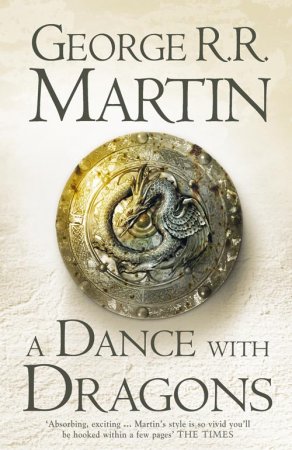 A Dance with Dragons
A Dance with Dragons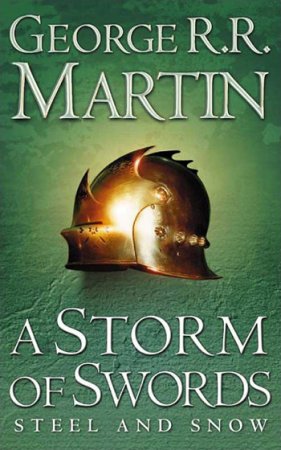 A Storm of Swords
A Storm of Swords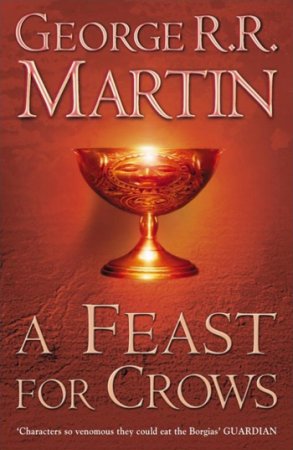 A Feast for Crows
A Feast for Crows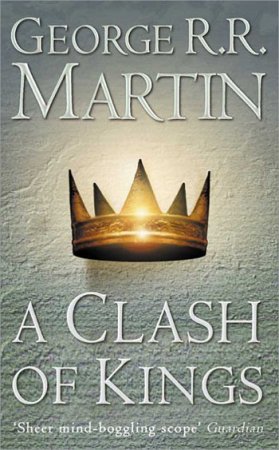 A Clash of Kings
A Clash of Kings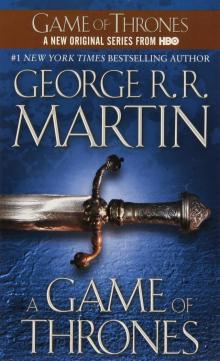 A Game of Thrones
A Game of Thrones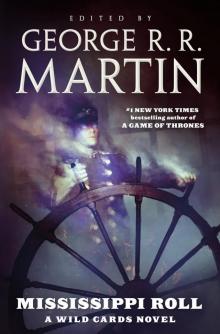 Mississippi Roll
Mississippi Roll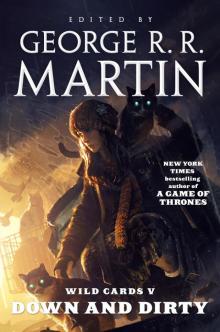 Wild Cards V: Down and Dirty
Wild Cards V: Down and Dirty Busted Flush
Busted Flush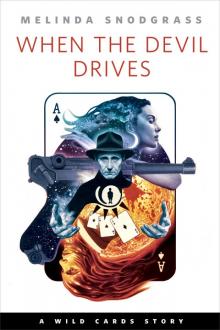 When the Devil Drives
When the Devil Drives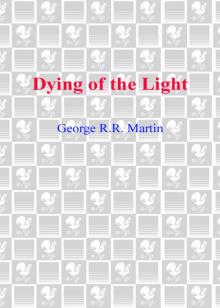 Dying of the Light
Dying of the Light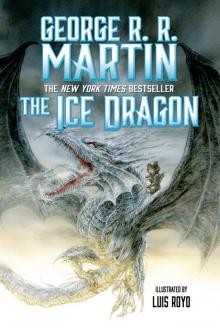 The Ice Dragon
The Ice Dragon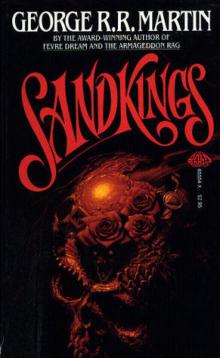 Sandkings
Sandkings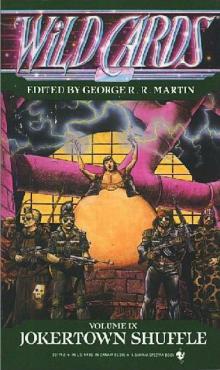 Jokertown Shuffle
Jokertown Shuffle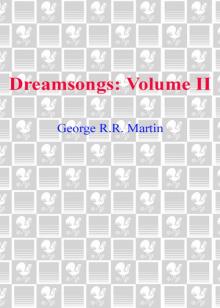 Dreamsongs. Volume II
Dreamsongs. Volume II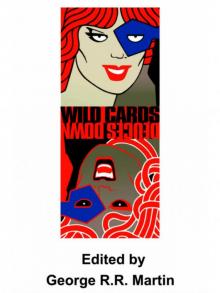 Deuces Down
Deuces Down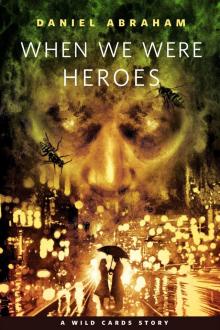 When We Were Heroes
When We Were Heroes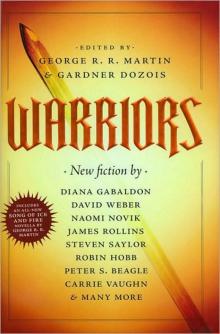 Warriors
Warriors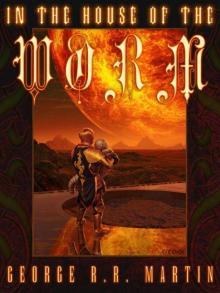 In the House of the Worm
In the House of the Worm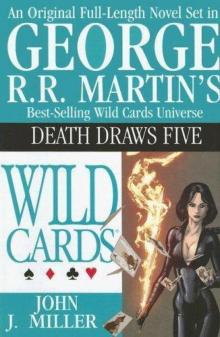 Death Draws Five
Death Draws Five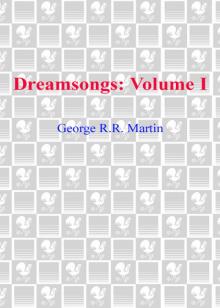 Dreamsongs. Volume I
Dreamsongs. Volume I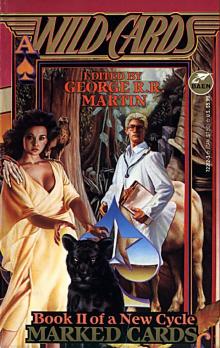 Marked Cards
Marked Cards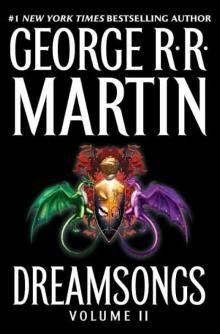 Dreamsongs
Dreamsongs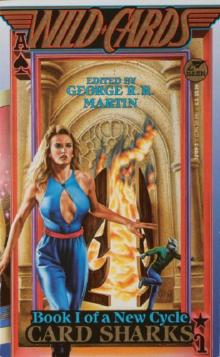 Card Sharks
Card Sharks Dangerous Women
Dangerous Women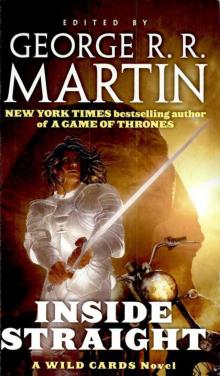 Inside Straight
Inside Straight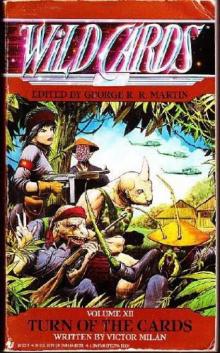 Turn of the Cards
Turn of the Cards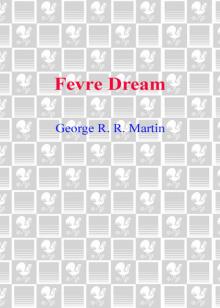 Fevre Dream
Fevre Dream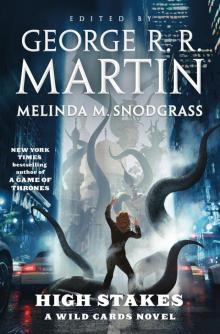 High Stakes: A Wild Cards Novel
High Stakes: A Wild Cards Novel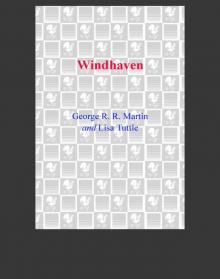 Windhaven
Windhaven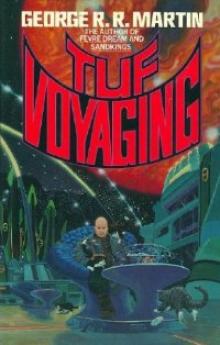 Tuf Voyaging
Tuf Voyaging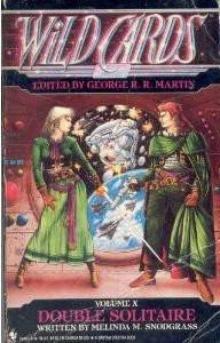 Double Solitaire
Double Solitaire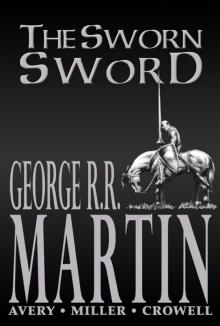 The Sworn Sword
The Sworn Sword Low Chicago
Low Chicago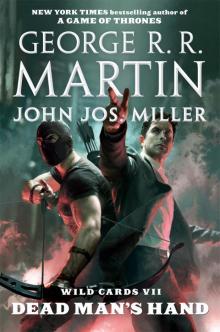 Dead Man's Hand
Dead Man's Hand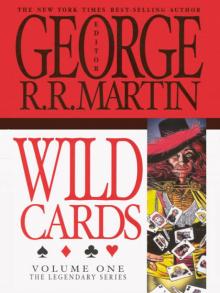 Wild Cards
Wild Cards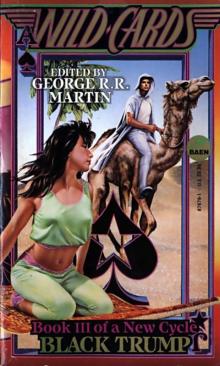 Black Trump
Black Trump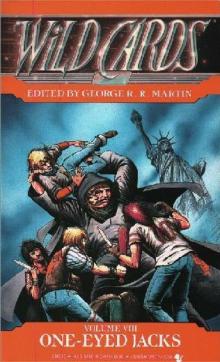 One Eyed Jacks
One Eyed Jacks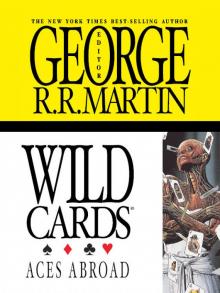 Wild Cards: Aces Abroad
Wild Cards: Aces Abroad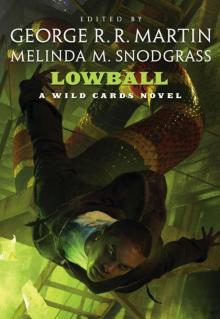 Lowball: A Wild Cards Novel
Lowball: A Wild Cards Novel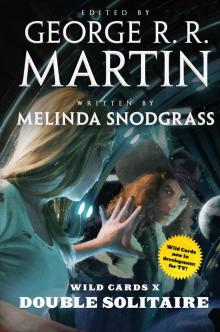 Double Solitaire (2019 Edition)
Double Solitaire (2019 Edition)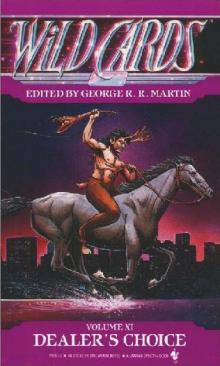 Dealer's Choice
Dealer's Choice Ace in the Hole
Ace in the Hole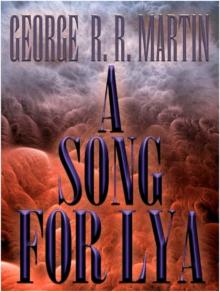 A Song for Lya: And Other Stories
A Song for Lya: And Other Stories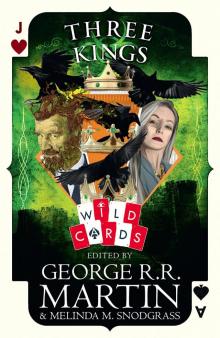 Three Kings
Three Kings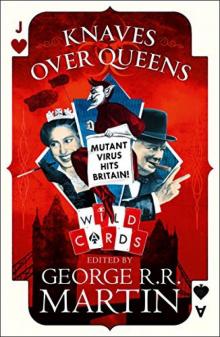 Knaves Over Queens
Knaves Over Queens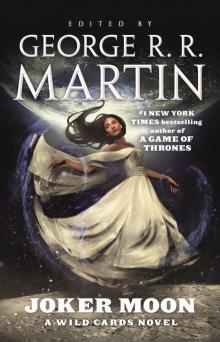 Joker Moon
Joker Moon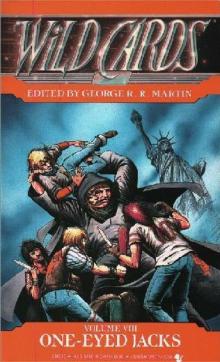 One Eyed Jacks wc-8
One Eyed Jacks wc-8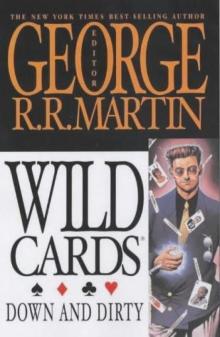 Down And Dirty wc-5
Down And Dirty wc-5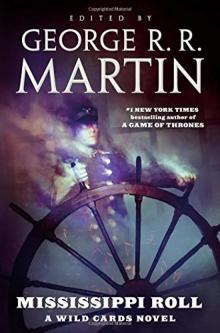 Mississippi Roll_A Wild Cards Novel
Mississippi Roll_A Wild Cards Novel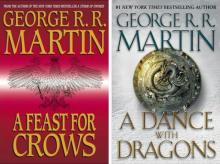 A Feast for Dragons
A Feast for Dragons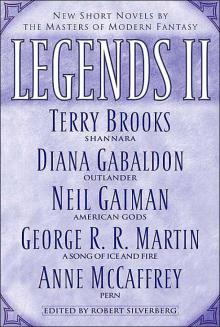 The Sworn Sword ttodae-2
The Sworn Sword ttodae-2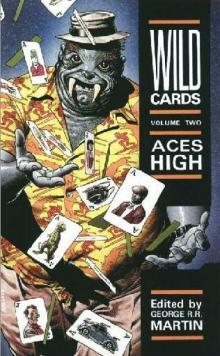 Aces High wc-2
Aces High wc-2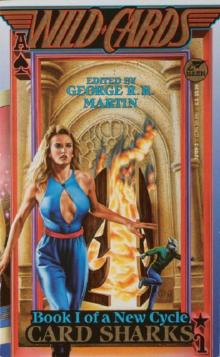 Wild Cards 13 : Card Sharks
Wild Cards 13 : Card Sharks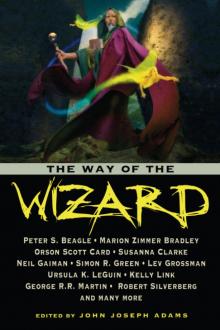 Way of the Wizard
Way of the Wizard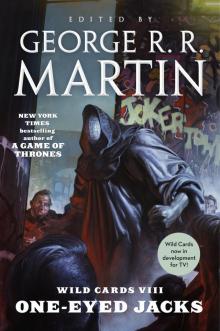 Wild Cards VIII: One-Eyed Jacks
Wild Cards VIII: One-Eyed Jacks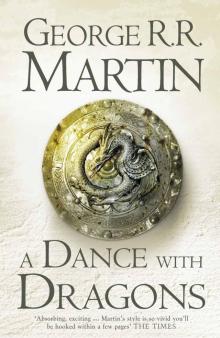 A Dance With Dragons: Book 5 of A Song of Ice and Fire (Song of Ice & Fire 5)
A Dance With Dragons: Book 5 of A Song of Ice and Fire (Song of Ice & Fire 5)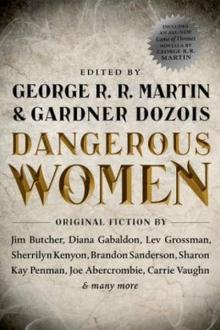 The Princess and The Queen, Or, The Blacks and The Greens (a song of ice and fire)
The Princess and The Queen, Or, The Blacks and The Greens (a song of ice and fire)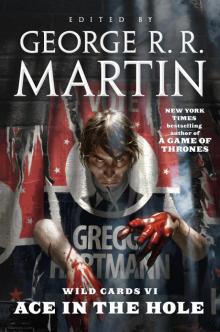 Wild Cards VI--Ace in the Hole
Wild Cards VI--Ace in the Hole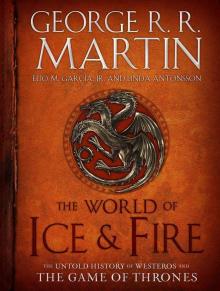 The World of Ice & Fire: The Untold History of Westeros and the Game of Thrones (A Song of Ice and Fire)
The World of Ice & Fire: The Untold History of Westeros and the Game of Thrones (A Song of Ice and Fire)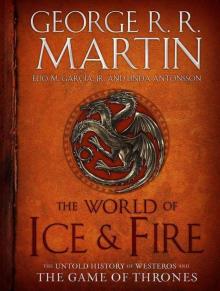 The World of Ice & Fire: The Untold History of Westeros and the Game of Thrones
The World of Ice & Fire: The Untold History of Westeros and the Game of Thrones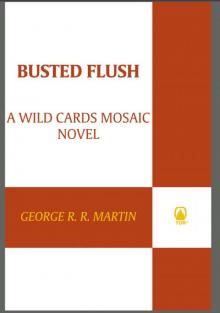 Busted Flush wc-19
Busted Flush wc-19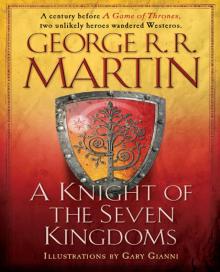 A Knight of the Seven Kingdoms
A Knight of the Seven Kingdoms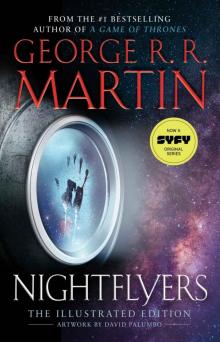 Nightflyers: The Illustrated Edition
Nightflyers: The Illustrated Edition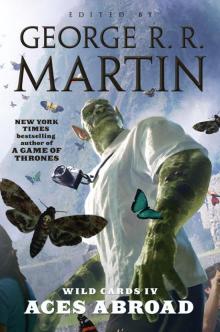 Wild Cards IV
Wild Cards IV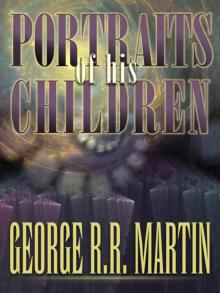 Portraits of His Children
Portraits of His Children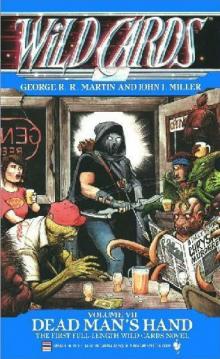 Dead Mans Hand wc-7
Dead Mans Hand wc-7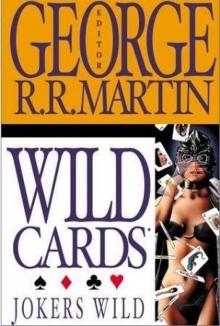 Jokers Wild wc-3
Jokers Wild wc-3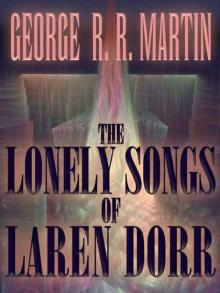 The Lonely Songs of Laren Dorr
The Lonely Songs of Laren Dorr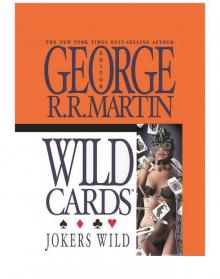 Wild Cards III: Jokers Wild
Wild Cards III: Jokers Wild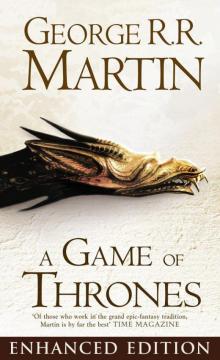 A Game of Thrones Enhanced Edition
A Game of Thrones Enhanced Edition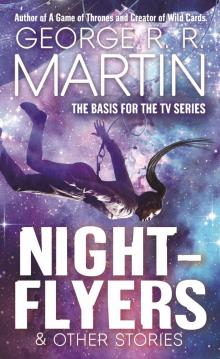 Nightflyers & Other Stories
Nightflyers & Other Stories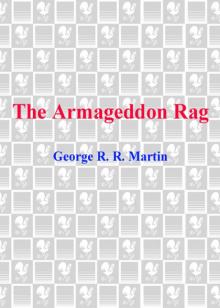 Armageddon Rag
Armageddon Rag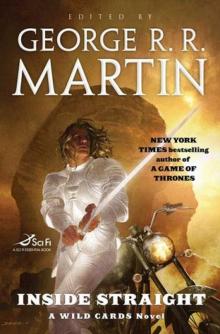 Wild Cards: Inside Straight
Wild Cards: Inside Straight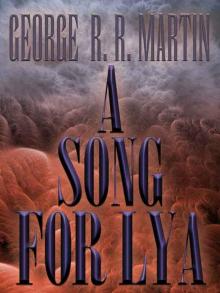 A Song for Lya
A Song for Lya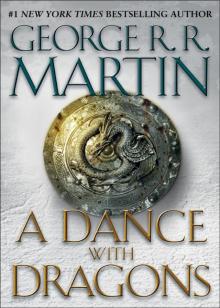 A Dance with Dragons: A Song of Ice and Fire: Book Five
A Dance with Dragons: A Song of Ice and Fire: Book Five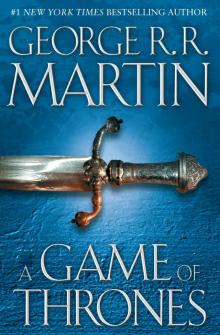 Song of Fire & Ice 01 - A Game of Thrones
Song of Fire & Ice 01 - A Game of Thrones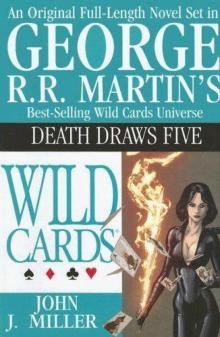 Death Draws Five wc-17
Death Draws Five wc-17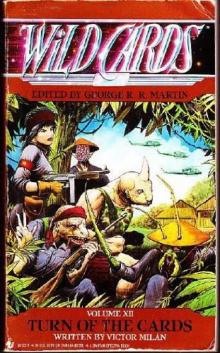 Turn of the Cards w-12
Turn of the Cards w-12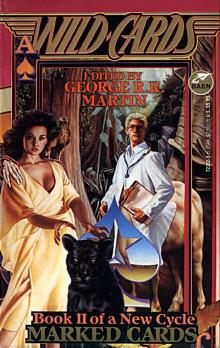 Wild Cards 14 - Marked Cards
Wild Cards 14 - Marked Cards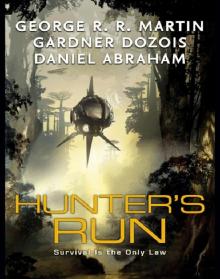 Hunter's Run
Hunter's Run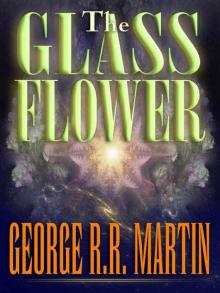 The Glass Flower
The Glass Flower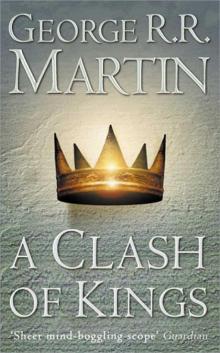 A Clash of Kings asoiaf-2
A Clash of Kings asoiaf-2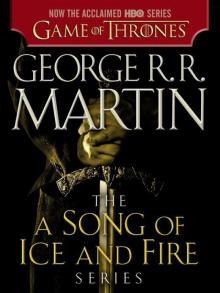 A Game of Thrones 5-Book Bundle: A Song of Ice and Fire Series: A Game of Thrones, A Clash of Kings, A Storm of Swords, A Feast for Crows, and A Dance with Dragons (Song of Ice & Fire)
A Game of Thrones 5-Book Bundle: A Song of Ice and Fire Series: A Game of Thrones, A Clash of Kings, A Storm of Swords, A Feast for Crows, and A Dance with Dragons (Song of Ice & Fire)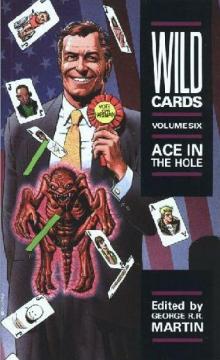 Ace In The Hole wc-6
Ace In The Hole wc-6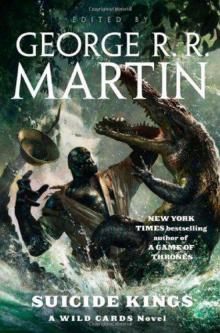 Suicide Kings wc-20
Suicide Kings wc-20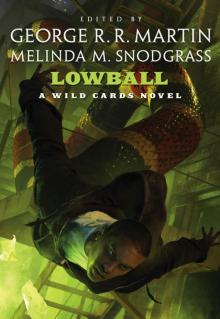 Lowball
Lowball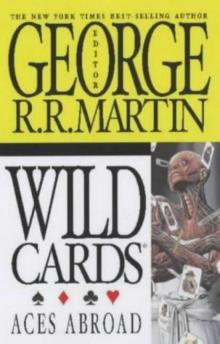 Aces Abroad wc-4
Aces Abroad wc-4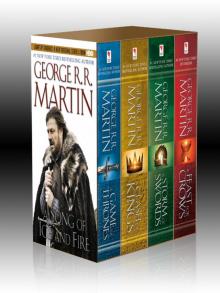 George R. R. Martin's a Game of Thrones 4-Book Bundle
George R. R. Martin's a Game of Thrones 4-Book Bundle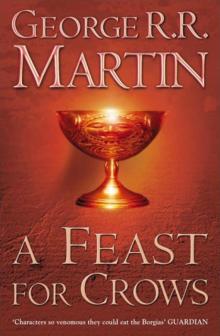 A Feast for Crows asoiaf-4
A Feast for Crows asoiaf-4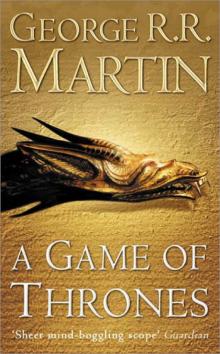 A Game of Thrones asoiaf-1
A Game of Thrones asoiaf-1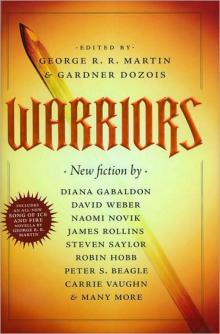 The Mystery Knight ttodae-3
The Mystery Knight ttodae-3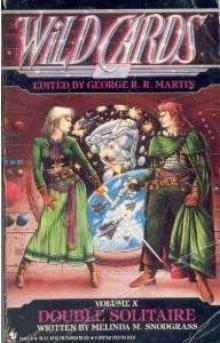 Double Solitaire w-10
Double Solitaire w-10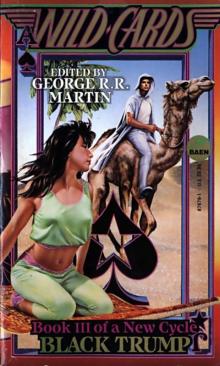 Wild Cards 15 - Black Trump
Wild Cards 15 - Black Trump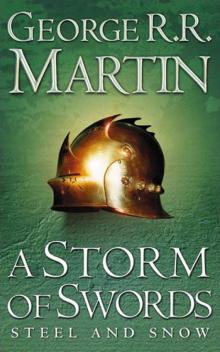 A Storm of Swords asoiaf-3
A Storm of Swords asoiaf-3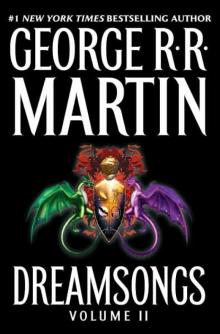 The Hedge Knight ttodae-1
The Hedge Knight ttodae-1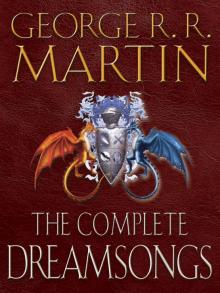 Dreamsongs 2-Book Bundle
Dreamsongs 2-Book Bundle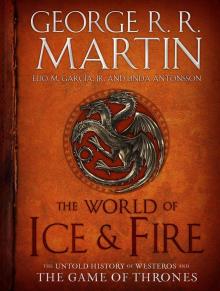 The World of Ice & Fire
The World of Ice & Fire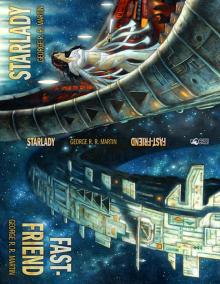 Starlady & Fast-Friend
Starlady & Fast-Friend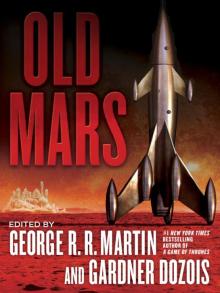 Old Mars
Old Mars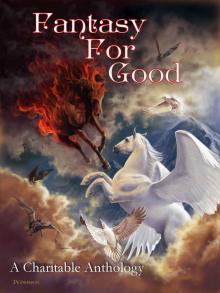 Fantasy For Good: A Charitable Anthology
Fantasy For Good: A Charitable Anthology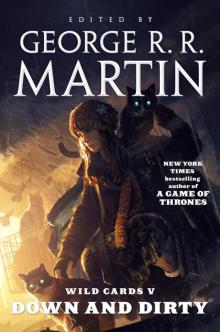 Wild Cards V
Wild Cards V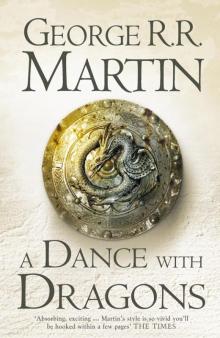 A Dance with Dragons asoiaf-5
A Dance with Dragons asoiaf-5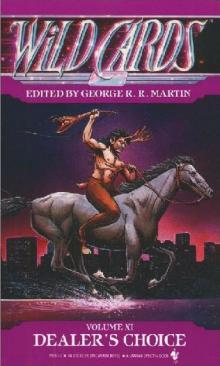 Dealer's Choice w-11
Dealer's Choice w-11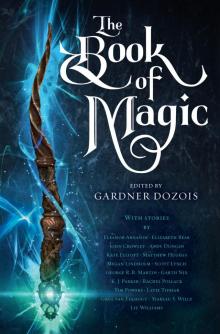 The Book of Magic
The Book of Magic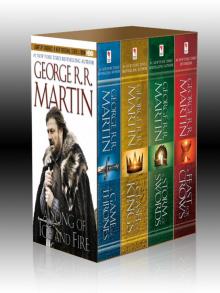 A Game of Thrones 4-Book Bundle
A Game of Thrones 4-Book Bundle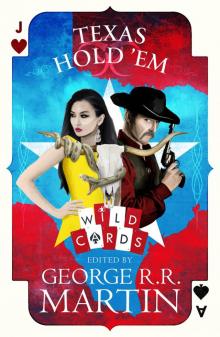 Texas Hold 'Em
Texas Hold 'Em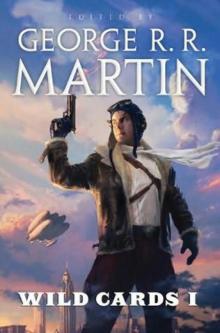 Wildcards wc-1
Wildcards wc-1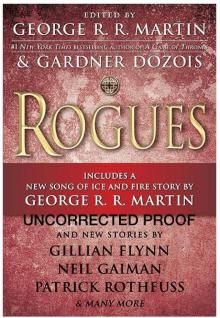 Rogues
Rogues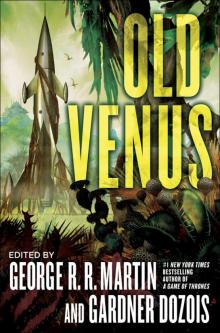 Old Venus
Old Venus